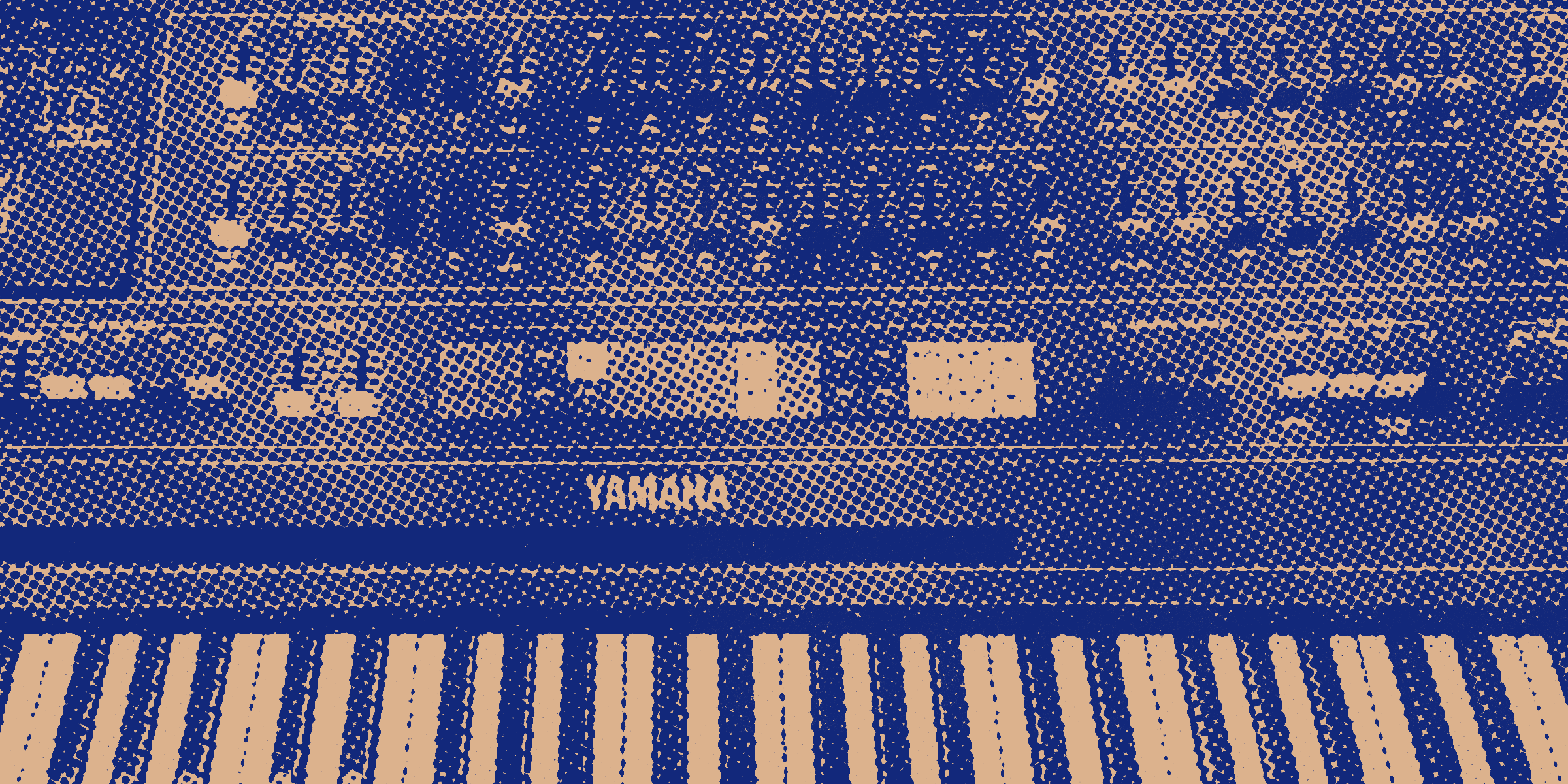Is the Yamaha CS-80 the most over-hyped synth of all time?
Heavy and expensive and heavy and hard to maintain and... the Yamaha CS-80 is a sought-after synth, but is it deserving of the desire?

The Yamaha CS-80 is a polyphonic analog synthesizer, a musical instrument that generates sound through analog signals. Produced by Yamaha Corporation from 1976 to 1980, it is often hailed as one of the greatest synthesizers ever made due to its unique combination of features and capabilities.
The CS-80 was a pioneer in the world of synthesizers, being one of the first to offer polyphony, a feature that allows multiple notes to be played simultaneously. This was a significant leap from the monophonic synthesizers of the time, which could only play one note at a time. The CS-80 offered eight voices of polyphony, meaning it could play up to eight notes simultaneously. Each of these voices could be layered, split, and detuned, providing a wide range of sonic possibilities.
But the CS-80 was not just about polyphony. It also featured a unique ribbon controller, a touch-sensitive strip that allowed for expressive pitch bending and modulation effects. This, combined with a comprehensive set of controls for shaping the sound, made the CS-80 a powerful tool for sound design.
The CS-80 was also notable for its build quality. It was housed in a substantial and robust case, with a high-quality, 61-note keyboard. Its weight, at over 200 pounds, was a testament to its solid construction.
Why It Is So Famous
The fame of the CS-80 can be attributed to several factors. First and foremost, it was one of the first synthesizers to truly capture the dynamic and expressive nature of traditional instruments. This was largely due to its polyphonic aftertouch and velocity-sensitive keyboard, features that allowed musicians to control the sound of the instrument in response to the pressure and speed of their playing. This level of expressiveness was unprecedented in synthesizers at the time and set the CS-80 apart from its competitors.
The CS-80 was also renowned for its sound. It was capable of producing a rich, warm, and full-bodied sound that was unlike any other synthesizer. This was due in part to its dual-channel design, which allowed for complex layering and detuning of sounds, and its high-quality filters, which gave the CS-80 its characteristic warmth.
Finally, the CS-80 gained fame due to its use by high-profile musicians and composers. Its unique sound and expressive capabilities made it a favorite among many in the music industry, and it was used on numerous iconic songs and film scores. To the point that it's impossible to think of the CS-80 and not think of the epic strains of the Bladerunner soundtrack (or Chariots of Fire for that matter) from Vangelis.
Who Created and Designed It
The Yamaha CS-80 was a product of Yamaha Corporation, a Japanese multinational corporation with a long history of producing high-quality musical instruments. Yamaha has always been known for its innovative spirit and commitment to quality, and the CS-80 was no exception.
While the exact individuals behind the design of the CS-80 remain somewhat of a mystery, it's clear that the synthesizer was the result of a team effort. It was likely designed by a team of engineers and designers at Yamaha, who would have worked together to bring the vision of the CS-80 to life.
The design of the CS-80 was a significant achievement. It was one of the first synthesizers to offer polyphony, and its unique combination of features set it apart from other synthesizers of the time. The CS-80 was a testament to Yamaha's innovative spirit and commitment to quality, and it remains a symbol of the company's legacy in the world of synthesizers.
How It Was Made
The Yamaha CS-80 was a marvel of analog circuitry, built with a meticulous attention to detail that contributed to its unique sound and character. Each of its eight voices was composed of two independent synthesizer channels, each with its own Voltage Controlled Oscillator (VCO), Voltage Controlled Filter (VCF), and Voltage Controlled Amplifier (VCA). This dual-channel design allowed for a wide range of sound design possibilities, as each voice could be programmed independently, and then layered or detuned to create complex, evolving sounds.
The CS-80 also featured a ring modulator, a device that multiplies two signals together to create harmonic overtones, and a noise generator, which could be used to add texture and character to the sound. These features, combined with the CS-80's high-quality filters and envelope generators, gave the synthesizer its distinctive and rich sound.
One of the most unique features of the CS-80 was its ribbon controller, a touch-sensitive strip that allowed for expressive pitch bending and modulation effects. This was a novel feature at the time, and it added a level of expressiveness that was rare in synthesizers of the era. The CS-80 was also notable for its build quality. It was housed in a robust, heavy-duty case, and its components were of the highest quality. This contributed to the CS-80's reliability and longevity, but it also made the synthesizer extremely heavy, with a weight of over 200 pounds.
Who Used It
The CS-80 was used by a number of notable musicians and composers. Perhaps most famously, Vangelis used the CS-80 extensively in his score for the film "Blade Runner," contributing to the movie's iconic and atmospheric sound. Other notable users include Stevie Wonder, Toto, Paul McCartney, and the electronic music duo Daft Punk.
What Famous Songs Were Made With It
The Yamaha CS-80 has been used in a number of iconic songs and scores, contributing to its legendary status. Perhaps the most famous use of the CS-80 is in Vangelis' score for the film "Blade Runner." The synthesizer's rich, atmospheric sounds were a perfect fit for the film's futuristic, dystopian setting, and the score remains a landmark in film music.
The CS-80 can also be heard on Toto's hit song "Africa," where it was used to create the song's distinctive keyboard parts. Paul McCartney used the CS-80 on his holiday classic "Wonderful Christmastime," and Stevie Wonder used it on his song "Village Ghetto Land," from his album "Songs in the Key of Life." In more recent years, the electronic music duo Daft Punk used the CS-80 on their album "Random Access Memories," further cementing the synthesizer's place in music history.
Why It Is Potentially Over-Hyped
While the Yamaha CS-80 is undoubtedly a remarkable instrument, some argue that its reputation is somewhat inflated. One reason for this is its rarity. The CS-80 was only produced for a few years, and due to its high cost and large size, relatively few units were sold. This has made the CS-80 a rare and sought-after instrument, which has undoubtedly contributed to its mystique.
Another factor is the high-profile artists who have used the CS-80. When a famous musician uses a particular instrument, it can often lead to an increase in the instrument's popularity and perceived value. While the CS-80 is certainly a high-quality instrument, some argue that its reputation is in part due to its association with artists like Vangelis and Stevie Wonder.
Finally, it's worth noting that the CS-80 is a notoriously difficult instrument to maintain. Its complex analog circuitry is prone to issues, and many units are now in need of extensive repairs. Furthermore, its large size and weight make it impractical for many modern musicians, who often prefer more portable and reliable digital synthesizers. Whether these limitations push it behind the reliability of something like the iconic Roland Juno synthesizer series seems to be up to the individual, but the scarcity and sheer curiosity around the CS-80 isn't going to fade any time soon.
What Other Versions or Emulations Exist
While the original Yamaha CS-80 is a rare and coveted instrument, there have been several attempts to recreate its unique sound and functionality in a more accessible format.
The CS-80V emulation from France's Arturia is one of the most well-known software emulations of the CS-80. This plugin aims to replicate the sound and functionality of the original CS-80, offering a virtual recreation of the synthesizer's dual-channel design, polyphonic aftertouch, and ribbon controller. The CS-80V also adds modern features like MIDI control and preset management, making it a powerful tool for today's musicians.
Memorymoon's ME80 is another software emulation of the CS-80. Like the CS-80V, the ME80 aims to capture the sound and expressiveness of the original CS-80, and it also offers additional features like extra modulation options and a built-in effects section.
In addition to these software emulations, there have also been hardware recreations of the CS-80. The Deckard's Dream synthesizer, created by Black Corporation, is a rack-mounted analog synthesizer that aims to recreate the sound of the CS-80. While it doesn't offer the full functionality of the original CS-80, it captures much of the synthesizer's unique character and sound.
The Cultural Impact of It
The Yamaha CS-80 has had a profound impact on music and culture. Its distinctive sound has been a defining feature of many iconic songs and film scores, and it has inspired countless musicians and composers. The CS-80's unique combination of expressiveness and sonic versatility made it a powerful tool for musical expression, and it played a key role in the development of electronic music. Its use in iconic film scores like "Blade Runner" helped to define the sound of science fiction cinema, and its influence can still be heard in film music today.
The CS-80 also had a significant impact on the design of synthesizers. Its innovative features, like polyphonic aftertouch and the ribbon controller, have been adopted by many other synthesizers, and its dual-channel design set a precedent for the complex, multi-layered sounds that are common in today's synthesizers.
Despite its age, the CS-80 continues to be highly sought after and revered in the music world. Its sound and expressiveness are still considered unmatched by many, and its influence can be heard in a wide range of music, from classic rock and pop to electronic music and film scores. The CS-80 is a testament to the power of musical innovation, and its legacy continues to inspire musicians and listeners alike.


